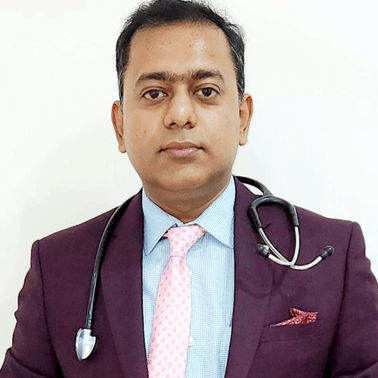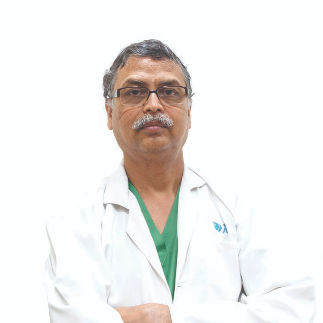Understanding the Dangers of Cervical Cancer
Learn about cervical cancer, its symptoms, causes, prevention tips, and treatment options. Discover how HPV vaccination and regular Pap smears can help protect your health.


Introduction
Cervical cancer is a serious health concern that affects thousands of women worldwide. While it can be life-threatening if not detected early, the good news is that it is also one of the most preventable and treatable forms of cancer when caught in its early stages. In this article, we’ll break down what cervical cancer is, its symptoms, causes, risk factors, and most importantly, how you can protect yourself.
What Is Cervical Cancer?
Cervical cancer occurs when abnormal cells in the cervix (the lower part of the uterus that connects to the vagina) grow uncontrollably. These cells can eventually form a tumour and, if left untreated, spread to other parts of the body.
The primary cause of cervical cancer is the human papillomavirus (HPV), a common sexually transmitted infection. While most HPV infections clear up on their own, certain high-risk strains can lead to cervical cancer over time.
Symptoms of Cervical Cancer
In its early stages, cervical cancer may not show any symptoms, which is why regular screenings are crucial. However, as the disease progresses, some warning signs may appear, including:
Abnormal vaginal bleeding (after intercourse, between periods, or after menopause)
Unusual vaginal discharge (watery, bloody, or foul-smelling)
Pelvic pain (during intercourse or otherwise)
Pain during urination
Unexplained weight loss or fatigue
If you experience any of these symptoms, it’s important to consult a doctor immediately. Early detection can significantly improve treatment outcomes.
Who Is at Risk?
Certain factors increase the likelihood of developing cervical cancer:
1. HPV Infection: The most significant risk factor.
2. Smoking: Weakens the immune system, making it harder to fight HPV.
3. Weakened Immune System: Conditions like HIV or long-term steroid use can increase risk.
4. Long-term Use of Birth Control Pills: Studies suggest a slight increase in risk with prolonged use.
5. Multiple Pregnancies: Women who have had three or more full-term pregnancies may be at higher risk.
6. Family History: A genetic predisposition may play a role.
Prevention and Early Detection
The best way to protect yourself from cervical cancer is through prevention and early detection. Here’s how:
1. HPV Vaccination
The HPV vaccine is highly effective in preventing infections from the most dangerous HPV strains. It is recommended for:
Girls and boys aged 9–14 years (two doses)
Women and men up to age 26 (three doses if started after 15)
Some adults up to age 45, depending on risk factors
2. Regular Pap Smears (Pap Tests)
A Pap smear checks for abnormal cervical cells before they turn cancerous. Women should start screening at age 21 and continue every 3–5 years, depending on age and risk factors.
Get Your Symptoms Checked By An Oncologist
3. HPV Testing
An HPV test detects high-risk HPV strains. Women over 30 may get this test along with a Pap smear every 5 years.
4. Safe Sex Practices
Using condoms and limiting sexual partners can reduce HPV exposure.
5. Quit Smoking
Smoking increases cervical cancer risk—quitting can significantly lower it.
6. Healthy Lifestyle Choices
A strong immune system helps fight HPV. Eat a balanced diet, exercise regularly, and manage stress.
Treatment Options
If cervical cancer is diagnosed, treatment depends on the stage:
Early-stage cancer may be treated with surgery (removing the tumour or cervix).
Advanced cases may require radiation, chemotherapy, or immunotherapy.
The key is early detection, which makes treatment more effective.
When to See a Doctor
Consult a doctor if you experience the following
If you notice unusual symptoms (bleeding, discharge, pain).
If you’re due for a Pap smear or HPV test.
If you haven’t been vaccinated against HPV and want to discuss options.
Conclusion
Cervical cancer is preventable and treatable with the right steps. If you’re due for a screening or have concerns, consult a doctor immediately.
Book a consultation or schedule a test through Apollo 24|7 for expert care from the comfort of your home.
Get Your Symptoms Checked By An Oncologist
Get Your Symptoms Checked By An Oncologist

Dr Sunita Samleti
Oncologist
18 Years • M.D. (Pathology)- TN Medical College, Mumbai University, Mumbai, Mar 2005 M.B.B.S. Grant Medical College, Mumbai University, Mumbai, Oct 1999
Chinagadila
Apollo Hospitals Health City Unit, Chinagadila

Dr Gowshikk Rajkumar
Oncologist
10 Years • MBBS, DMRT, DNB in Radiation oncology
Bengaluru
Apollo Clinic, JP nagar, Bengaluru

Dr.sanchayan Mandal
Oncologist
17 Years • MBBS, DrNB( MEDICAL ONCOLOGY), DNB (RADIOTHERAPY),ECMO. PDCR. ASCO
Kolkata
Dr. Sanchayan Mandal Oncology Clinic, Kolkata

Dr. Sanchayan Mandal
Oncologist
17 Years • MBBS, DNB Raditherapy, DrNB Medical Oncology
East Midnapore
VIVEKANANDA SEBA SADAN, East Midnapore

Dr. Praveen Kumar Garg
Surgical Oncologist
26 Years • MBBS, M.S.(Gen.Surg.), M.Ch.(OncoSurg.)
Delhi
Apollo Hospitals Indraprastha, Delhi
(50+ Patients)
